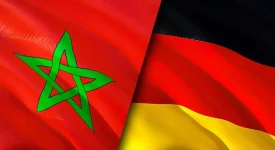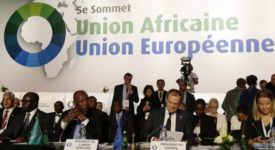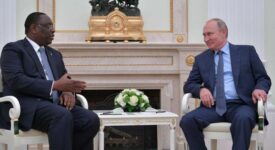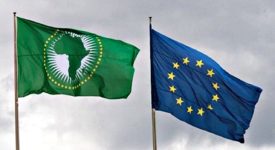It is often noted that regionalism is not well developed in the Middle East and North Africa region (MENA). Even though the MENA region has witnessed a proliferation of regional cooperation mechanisms since the mid-1940s, with the Arab League being the oldest functioning regional organization worldwide, there is a clear mismatch between the levels of formalized cooperation and the level of regional integration. Even the Gulf Cooperation Council (GCC), formerly heralded as the most successful sub-regional cooperation forum, is experiencing a severe crisis prompted by the boycott of Qatar by Saudi Arabia, Egypt and the United Arab Emirates.
While we consider the 2011 Arab uprisings, we can see that subsequent regional developments opened up new possibilities in the region, but the uprisings also increased the level of regime insecurity amid shifting threat perceptions, thus modifying the preferences of the different actors when dealing with regional organizations. Hence, as the mirage of regionalism quickly faded, political developments in the region after 2011 hindered the emergence of regional integration and cooperation in the medium to long term.
Examining the roles played by regional organizations in the MENA region post-Arab uprisings highlights the mismatch between weak regionalism, that is, regional integration steered by political elites, and growing regionalization trends, that is, the growing societal and partly cultural interconnectedness of the region. During the uprisings, Arab populations – together with events in the region – became increasingly interconnected. While this development for a brief period overlapped with regional cooperation initiatives undertaken by political leaders, the divergent interests of key Arab regimes and their concern with their own survival in a threatening regional environment meant that regionalism and regionalization soon parted ways.
Concurrently, the factors that had traditionally limited regional integration remained in place and even increased in strength. This study, which is based on extensive fieldwork in Riyadh and Cairo, focuses on three very different regional organizations – the Arab League, the Gulf Cooperation Council and the Arab Maghreb Union – while also considering overlapping regional cooperation initiatives on the African continent. Despite their distinct nature, most of these organizations adopted a proactive role in the early days of the uprisings and in the initial periods of the erupting conflicts in Libya and Syria. But they all soon either reverted to their traditional low-profile political role or, as in the case of the GCC, experienced an outright crisis.
While the Arab uprisings provided a significant opportunity for the strengthening of regional cooperation, the regionalist momentum in the MENA region from 2011 to 2013 dissipated rather quickly thereafter. Initial expectations were soon disappointed and regional organizations in the MENA became hostages to the dynamics of regional fragmentation. The uprisings and the subsequent power shifts in the region rekindled old rivalries and created new ones, and the increased level of insecurity further impeded the emergence of any meaningful regional integration and cooperation.
What remains to be seen is whether the Arab League, the Arab Maghreb Union and the Gulf Cooperation Council – and perhaps also the African Union and other regional organizations – will become a battleground where competition among regional powers is played out. If this were the case, regional organizations could gain some prominence in the process of regional reordering. Alternatively, these organizations could become even more marginal, losing power to ideological or interest-based alliances that might transcend the region’s boundaries.
‚The Mirage of Regionalism in the Middle East and North Africa Post-2011‘ – Working Paper by Raffaella A. Del Sarto and Eduard Soler i Lecha – Barcelona Centre for International Affairs / CIDOB.
The Working Paper can be downloaded here






